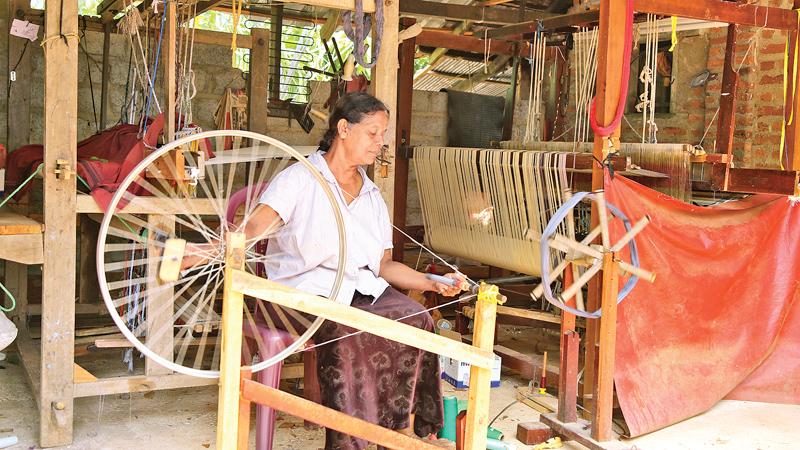
The deliberations on protecting and preserving the Traditional Knowledge (TK) and Traditional Cultural Expressions (TCE) of the country’s Intellectual Property (IP) which had been going on at a snail’s pace for a considerable time, resumed in Colombo recently, with the participation of representatives from the Ministry of Industry and Commerce, the G 15 Secretariat, the World Intellectual Property Oganisation (WIPO) and civil society organizations from across the country.
It was the first G15 session in Sri Lanka on TK and TCE which exposed the participants from Sri Lanka to a wide spectrum of knowledge on IP and its preservation.
The discussions focused on the importance of recognizing and claiming Sri Lanka’s innovations, traditional knowledge and creativity which are fast loosing value and fading from memories.
Stakeholders comprising a wide representation, deliberated on fast-tracking the preparation of the draft national policy for the protection and preservation of the country’s traditional knowledge and traditional cultural expressions.
The allocation of Rs. 100 million by the Ministry of Industry and Commerce was a fillip to the move in drafting a national policy for the preservation of TK and TCE which had been the bedrock of the country’s civilization. The traditional knowledge and cultural expressions act as catalysts for innovation and creative work.
A workshop on ‘Intellectual Property and Traditional Knowledge and Traditional Cultural Expressions’ attended by members of WIPO, the Mninistry of Industry and Commerce, environmental organisations and experts in various fields was also held at the BMICH.
Ambassador and Permanent Representative of Sri Lanka to the United Nations Ravinatha Ariyasinha paid a glowing tribute to late Minister of Foreign Affairs Lakshman Kadirgamar for playing a pivotal role in bringing recognition and protecting and preserving the country’s intellectual property.
“My aim is to contribute and continue the good work of Minister Kadirgamar in claiming and bringing recognition to the country’s innovations and creativity,” Ariyasinha said.
The G 15 secretariat and WIPO have extended their fullest support to Sri Lanka in helping it preserve its traditional knowledge and practices.
The values inherited by developing countries are been grabbed away by powerful countries and wealthy countries for research and development.
The traditional knowledge and practices in the country are gradually being subjected to the danger of disappearance and there is a noticeable decline in the use of indigenous resources. What is pathetic is that while developed countries are in the process of flicking away the indigenous knowledge and practices, economic growth in the country is subjected to decline.
WIPO Global Issues Sector, Assistant Director General Minelik Getahun said the question of who would be the custodians of traditional knowledge and practices will arise if the government fails to claim and preserve it.
Universitas Padjadjaran Bandung, Indonesia Faculty of Law Law Lecturer and Researcher Miranda Risang Ayu Palar said bioprospections, bio-piracy, unjust enrichment, Cultural conflicts and false attributions are some of the frequent issues in protecting IP due to lack of laws and poor implementation of regulations.
Environmentalist Thilak Kariyawasam said, “All these facts implies that there needs to be a national policy on traditional knowledge and practices that had been and continue to be the life blood of the country.”
The national policy will bind all institutions and individuals to preserve the life pattern and culture of indigenous people, to propagate the traditional knowledge and practices inherent in them and to the efficient use of indigenous resources.
Minister of Industry and Commerce Rishad Bathiudeen said he hopes to present the draft national policy to Parliament before the end of the year.
However, the views of all stakeholders will be sought before making the final draft.
